KYUNGPOOK UNIVERSITY
Kyungpook National University (KNU) is one of the key national universities, boasting a long history of development and leading prestige in South Korea. Established in 1946, KNU is located in Daegu City—a major center for industry, commerce, and education in the central part of South Korea. KNU comprises more than 15 member colleges, 12 graduate schools, and numerous specialized research centers, making it an ideal destination for domestic and international students. It is particularly strong in the fields of engineering, natural sciences, medicine and pharmacy, biotechnology, economics, education, and agriculture.
7/16/20254 min read
Kyungpook National University (KNU)
Kyungpook National University (KNU) is one of the major national public universities with a long history of development and a leading reputation in South Korea. Established in 1946, KNU is located in Daegu City—a major industrial, commercial, and educational hub in the central region of South Korea.
KNU has over 15 undergraduate colleges, 12 graduate schools, and numerous specialized research centers. It is an ideal destination for both domestic and international students, particularly excelling in fields such as Engineering, Natural Sciences, Medicine, Biomedical Engineering, Economics, Education, and Agriculture.
The university also possesses an extensive global network of partnerships, offering various international academic programs and a globalized learning environment, meeting the demands of global integration.
Address:
Daegu Campus: 80 Daehak-ro, Buk-gu, Daegu, South Korea
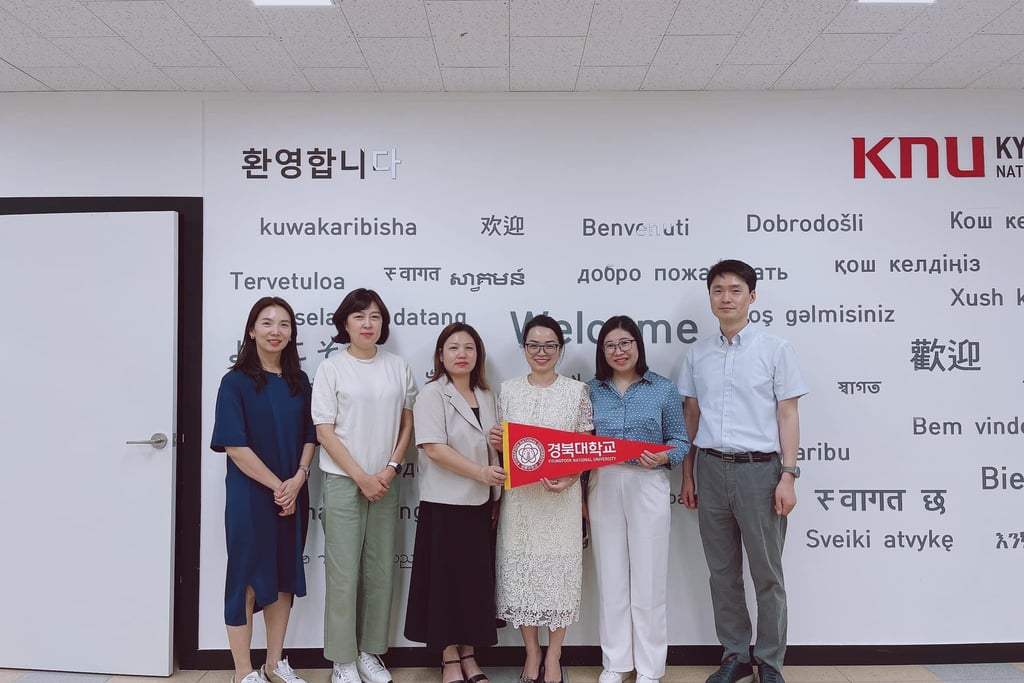

Main Study Fields
Humanities
Korean Language and Literature
English Language and Literature
German Language and Literature
French Language and Literature
Chinese Language and Literature
Japanese Language and Literature
Russian Language and Literature
History
Philosophy
Archeology and Anthropology
Requirement: TOPIK Level 3 or higher
Social Sciences
Public Administration
Political Science and Diplomacy
Library and Information Science
Social Welfare
Media and Communication
Sociology
Requirement: TOPIK Level 3 or higher
Natural Sciences
Mathematics
Physics
Chemistry
Biological Sciences (Biotechnology, Life Sciences)
Earth System Sciences
Statistics
Requirement: TOPIK Level 3 or higher
Economics & Business Administration
Economics
Business Administration
International Trade
Accounting
Requirement: TOPIK Level 3 or higher
Engineering
Mechanical Engineering and Advanced Materials Science
Mechanical Engineering (Architecture major)
Architecture (Architectural Engineering major)
Civil Engineering
Chemical Engineering
Polymer Science and Engineering
Textile Engineering
Environmental Engineering
Food Science and Engineering
Energy and Resources Engineering
Requirement: TOPIK Level 3 or higher
IT Engineering
Electronic Engineering
Computer Science (IT, AI, Software Platform, Data Science, Applied Statistics)
Requirement: TOPIK Level 3 or higher
Agricultural, Food, & Ecological Sciences
Food Science and Biotechnology
Applied Biosciences
Food Manufacturing Engineering
Horticulture
Landscape Architecture and Regional Development
Agricultural Economics
Requirement: TOPIK Level 3 or higher
Arts
Korean Music
Traditional Music
Fine Arts
Design
Requirement: TOPIK Level 3 or higher
Education
Education
Social Studies Education
Requirement: TOPIK Level 3 or higher
Life Sciences
Home Economics
Clothing and Textiles
Food and Nutrition
Requirement: TOPIK Level 3 or higher
Health Sciences
Nursing
Health Administration
Requirement: TOPIK Level 3 or higher
Tuition Fees
Korean Language Program:
Tuition Fee: KRW 5,200,000 / 4 terms (total course fee, divided into 4 terms for 1 year of language study, includes initial registration fee).
Undergraduate & Graduate Programs:
Humanities, Social Sciences, Economics, Business Administration Group: KRW 2,600,000 – 3,300,000 per semester
Natural Sciences, Agricultural, Life Sciences Group: KRW 3,000,000 – 3,900,000 per semester
Engineering, Technology, IT Group: KRW 3,700,000 – 4,800,000 per semester
Medicine, Dentistry, Nursing Group: KRW 4,500,000 – 6,000,000 per semester
Admission Information
Graduated from a corresponding program (High School, University).
Full academic transcripts (must be notarized translation if not in English/Korean).
Korean Language Certificate (TOPIK Level 3 or 4 or higher, depending on major) or English Certificate (IELTS/TOEFL) if the major is taught in English.
Study Plan, Curriculum Vitae (CV), 2 letters of academic recommendation.
Research proposal (required for graduate research programs).
Personal dossier and other fees (application fee, admission fee, insurance).
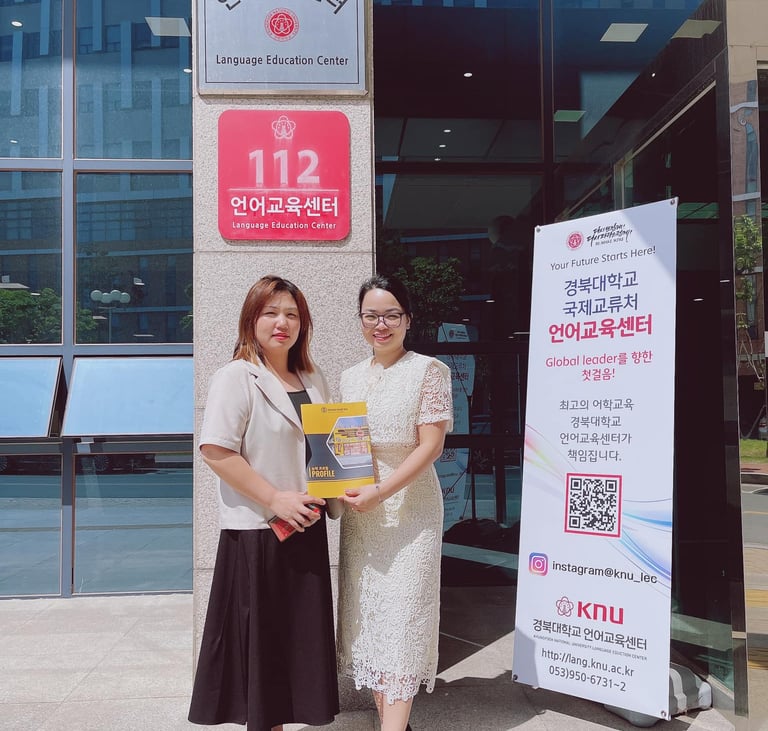

Scholarships
1. TOPIK Scholarship (Applicable for the first semester)
Achieve TOPIK Level 3: 20% reduction in first semester tuition
Achieve TOPIK Level 4: 40% reduction in first semester tuition
Achieve TOPIK Level 5 or higher: 80% reduction in first semester tuition
2. GPA Scholarship (Applicable from the second semester onwards)
Top 7% of international students: 80% reduction in tuition
Top 30% of international students: 20% reduction in tuition
Facilities and Student Life
The campus is large, modern, and located in Daegu City, featuring lush greenery, and integrated spaces for study, recreation, sports, and arts.
Central Library: equipped with over 2 million books, electronic resources, group study rooms, and 24/7 open self-study spaces.
Modern lab systems and research centers: well-serving majors in engineering, technology, medicine, natural sciences, and biotechnology.
International Student Dormitory: offers various room choices (single/double) with full amenities (bed, desk, Wi-Fi, air conditioning, shared kitchens, laundry rooms), 24/7 security, common living areas, dining halls, and convenience stores right on campus.
International Student Support Center: provides counseling on applications, visa guidance, orientation programs, cultural exchange activities—helping international students quickly settle in.
A multitude of academic, sports, arts, and volunteer clubs: diverse extracurricular activities, soft skill development, and networking between domestic and international students.
Kyungpook National University Hospital: a modern facility that serves as an ideal training ground for medical students while providing health care for all students and university staff.
System of dining halls, cafés, gyms, sports fields, and recreation areas: modern facilities for convenient living, studying, and entertainment for students.
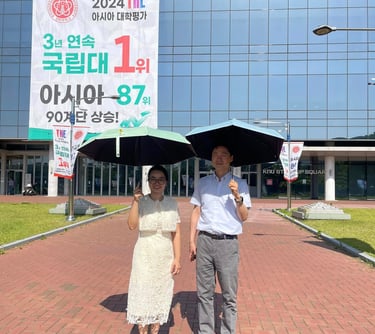

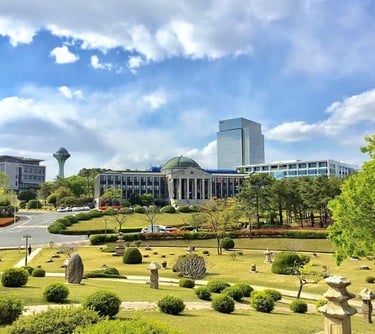

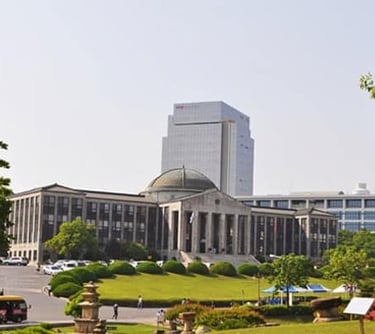

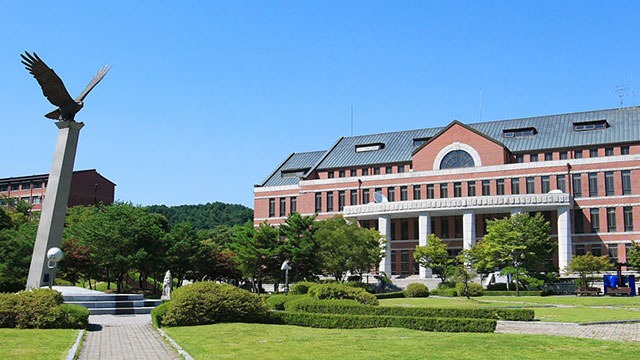

BEE Foreign Language
Bee Consulting and Training Co., Ltd.
Study Abroad
0906.044.086
No. 6-8 Ngo Quyen Street, An Lao
